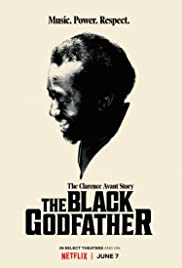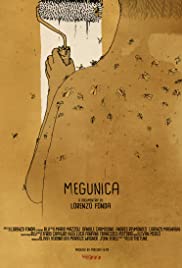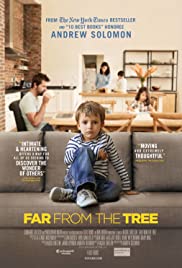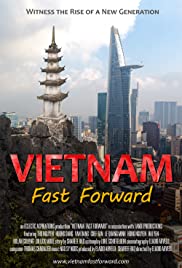
Stewart Copeland, drummer for The Police, compiles his Super 8 footage to offer an intimate look at what it was like to be a member of one of the most important rock bands of all time.
You May Also Like

Follows the life of Clarence Avant, the ultimate, uncensored mentor and behind-the-scenes rainmaker in music, film, TV and politics.

A team of filmmakers take a tour of South America with mural artist and animator Blu, looking to see how his art and mind will be influenced through total immersion in foreign cultures. The team traveled through Mexico, Guatemala, Nicaragua Costa Rica and Argentina, and named the film after those countries. In the director’s words, “What came out was an unscripted film about improvisation, inspiration (and perspiration), innovation, self-exploration and all the other good things in life that end with -ion.”

Clark Ashton Smith was a poet, fantasist, sculptor, and painter. This lyrical documentary explore’s Smith’s work and life as a solitary artist living in Auburn, California. It features interviews with leading scholars such as S. T. Joshi, Scott Connors, Ron Hilger, and legendary writer Harlan Ellison. Donald Sidney-Fryer is featured as a sort of tour guide to Smith’s Auburn.

In Third Reich, the abuse of drugs made commanders and soldiers feel invincible. The Führer himself took them on daily basis. This is the unbelievable story of the D-IX project and of methamphetamines, which, abundantly furnished to soldiers, changed the course of history.

A national public health emergency is sweeping through North America. In this close examination of the opioid crisis – the most deadly epidemic to devastate the US in recent years – medical professionals come together to deliver their verdict. Narrated by Ed Harris, Do No Harm shows us the devastating effects of these drugs, and casts light up on those who must be held accountable.

“Last autumn, a good childhood friend of mine, Florin, told me that his brother, Laurentiu, invented a new sport by changing the rules of football. One month later I went to Vaslui, my hometown, with a small film crew in order to learn more about this new sport…”

Parents of children who have Down syndrome, dwarfism or autism share intimate stories of the challenges they face. Tracing their joys, challenges, tragedies, and triumphs.

Through interviews and real-life examples, Hari Sreenivasan and Dr. Haass explore how Americans are working towards strengthening democracy and renewing the spirit of a more informed and engaged citizenry.

Forty years ago, Wollongong’s Jobs for Women Campaign, with director Robynne Murphy among its leaders, took on Australia’s most powerful company BHP – and won. But when the 1980s steel slump devastated the city’s economy, the women were forced into the courtroom. Their struggle plays out against a background of societal changes: from anti-discrimination legislation, to the shifting roles of women in the home and workforce (particularly complex in Wollongong’s migrant, non-English speaking households). This fascinating account of the largely forgotten history of Australia’s Steel City was crafted over decades with support from local community volunteers and over 500 donors.

FINDING THE MONEY follows economist Stephanie Kelton on a journey through Modern Money Theory or “MMT”. Kelton provocatively asserts the National Debt Clock that ticks ominously upwards in New York City is not actually a debt for us taxpayers at all, nor a burden for our grandchildren to pay back. Instead, Kelton describes the national debt as simply a historical record of the number of dollars created by the US federal government currently being held in pockets, as assets, by the rest of us. MMT bursts into the media with journalists asking, “Have we been thinking about how the government spends money, all wrong?” But top economists from across the political spectrum condemn the theory as “voodoo economics”, “crazy” and “a crackpot theory”. FINDING THE MONEY traces the conflict all the way back to the story we tell about money, injecting new hope and empowering countries around the world to tackle the biggest challenges of the 21st century: from climate change to inequality.

After years of war and occupation, a new generation of inspiring entrepreneurs sets out to pursue their personal dreams while pushing Vietnam forward onto the world stage.

Starting with the image of a tour bus warming its engine in the stillness of an empty lot, this haunting, personal portrait of music legend Levon Helm evokes the mood of a lifetime spent on the road. Jacob Hatley’s extraordinarily intimate documentary finds Helm, a founding member of The Band, at home in Woodstock in the midst of creating his first studio album in 25 years. The ultimate survivor, he’s overcome drugs, bankruptcy, the bitter breakup of The Band and a bout of throat cancer -but then, as the rueful title indicates, he wasn’t in it for his health